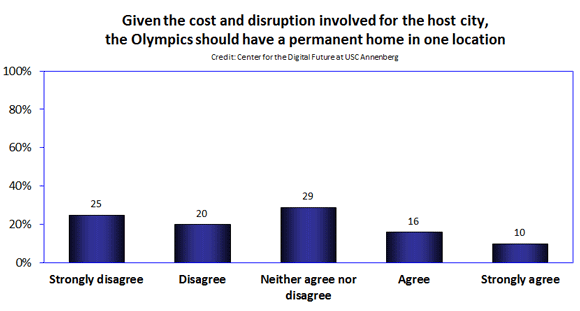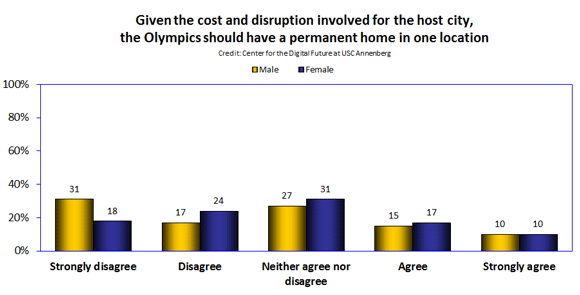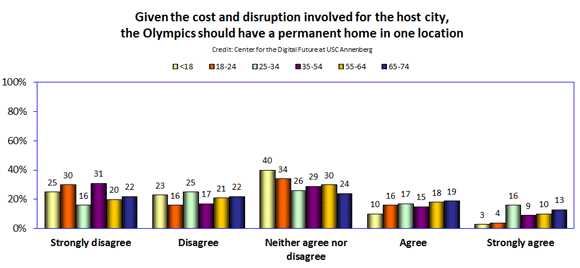The International Olympic Committee (IOC) picks a different city to host each Olympic Games. But controversy continues to follow the pick of many host cities: for example, in Rio de Janeiro during the 2016 Olympic Games, there was fear of armed robbery and marathon swimmers competing in sewage-contaminated Guanabara Bay.
 With the choice of Beijing for the 2008 Olympics, critics voiced concerns about the appropriateness of giving an authoritarian regime an opportunity to burnish its international image — an issue that first came up with Nazi Germany was selected to host the 1936 Olympics, and came up again with the selection of Sochi, Russia, for the 2014 Winter Olympics. Choosing Sochi not only raised environmental and economic concerns, but also concern about the safety and human rights of LGBT athletes and journalists.
With the choice of Beijing for the 2008 Olympics, critics voiced concerns about the appropriateness of giving an authoritarian regime an opportunity to burnish its international image — an issue that first came up with Nazi Germany was selected to host the 1936 Olympics, and came up again with the selection of Sochi, Russia, for the 2014 Winter Olympics. Choosing Sochi not only raised environmental and economic concerns, but also concern about the safety and human rights of LGBT athletes and journalists.
The IOC relishes the international clout that comes with choosing Olympic sites. The prize of being chosen as a host city has been coveted by many nations, although more recently, fewer have been willing to expend the effort and money that hosting the Games requires; the issues of finances, resources, and infrastructure required to host the games strain the capacities of even wealthy and developed countries.
To avoid these issues, critics of the IOC’s current policy of choosing host cities have suggested establishing a single permanent home for the Olympics (or two hosts: one permanent host for the Summer Olympics and another for the Winter Games).
Do Americans think that choosing a permanent home for the Olympics is a good idea?
In the Center’s study of the media and sports, we asked respondents for their views about choosing a permanent home for the Olympics.
Overall
Among Americans, the idea is not very popular: only 10% strongly agreed, with an additional 16% agreeing somewhat. On the other hand, 20% disagreed somewhat and 25% strongly disagreed.

Gender
More men than women disagreed with the Olympics having a permanent home (48% for men versus 42% for women).

Age
At least 40% of respondents in all age groups also disagreed somewhat or strongly. On the other hand, no more than 33% in any age group agreed somewhat or strongly.

If the problems related to choosing a host city for the Olympics persist or get worse, the notion of a permanent host for the Olympics may catch on. But right now, the idea does not enjoy much support among Americans.
__________
See all Web Insights.
April 23, 2018

